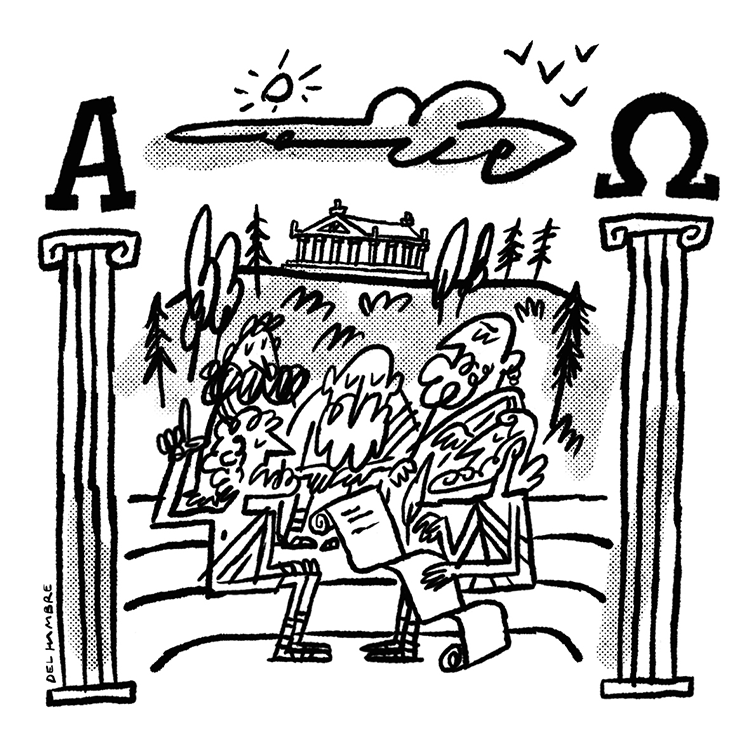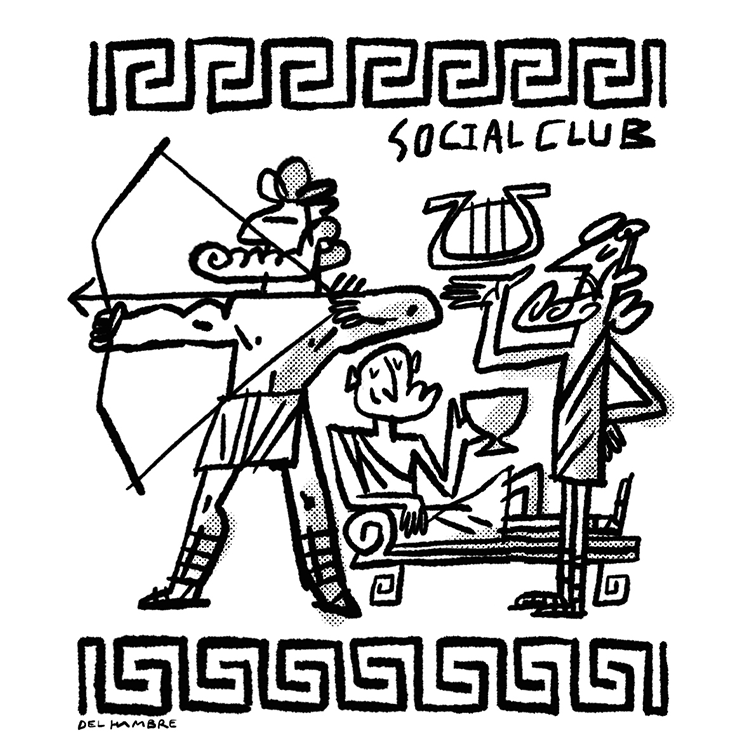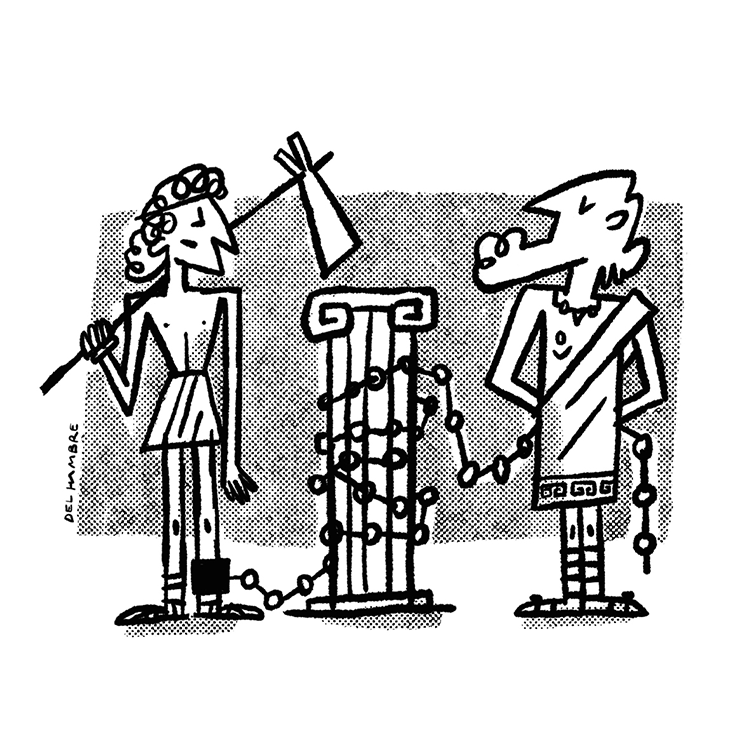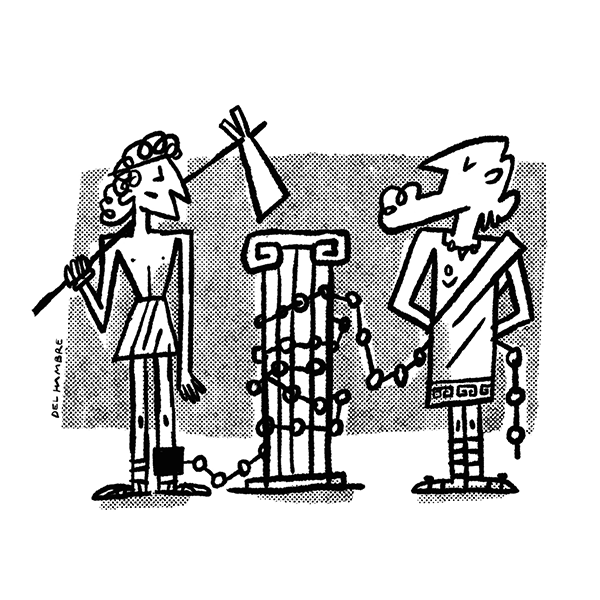If you were alive in ancient times, Athens was the place to be. Athenian artists, poets, philosophers, mathematicians, and politicians were known around the world, helping make Athens a true “city upon a hill.” (Both literally and figuratively).
Indeed, Classical Athens was so famous that even today we still regard it as a model city.
But what was it actually like to live in Athens during ancient times? Was it as great as we think it was?
Turns out we’ve maybe exaggerated a few things. Most people were still farmers who spent their lives working hard to survive and make ends meet. Yet if we compare it to how things were in other cities at the time, it’s easy to see why Athens has become so famous over the years.

The World’s First Democracy
Part of what made Athens so “cool” was that it operated as a democracy. This meant that political power belonged to the people. More specifically, to the ekklēsia, or the “assembly.” (For those of us who don’t speak Greek.)
This body was made up of all the male citizens of Athens. It met monthly to debate and decide the main issues facing Athenian society.
At the assembly meetings, citizens would discuss which gods they should build temples to, whether or not they should go to war, where they should settle new colonies, what was considered a crime, how crimes should punished, who got to take control of newly acquired land, whether or not it’s okay to put pineapple on pizza…you know, the important stuff.
Okay, the ancient Greeks didn’t have pizza. But all the other stuff, and more, was critical to the functioning of their society, and so they were hot topics at assembly meetings.
Of course, to make things easier, a lot of the day-to-day decision-making was delegated to elected officials. But they were accountable to the assembly, and the biggest decisions had to be agreed upon by everyone.
A Free Society?
Such a style of government was pretty much unheard of in the ancient world at the time.
Several other Greek city-states practiced democracy, perhaps after seeing how Athens made it work. But outside of these few exceptions, kings, aristocrats, despots, and other tyrants all held a tight grip on power. Regular folks had little say in the affairs of the state.
In these places, even trying to gain more political power could cost you your life.
All of this meant that Athenian society was considerably more free than most other societies existing at the time.
You wouldn’t have to fear being thrown out of town, sold into slavery, or being executed because the person in power was having a bad day and didn’t like the way you looked at them, something that very much could happen in places where power was more centralized.
This isn’t to say the ancient Athenians had true free speech. Just ask Socrates.
The people in power didn’t like the ideas he was sharing. So, they accused him of “impiety” and “corrupting the youth,” and made him drink hemlock, which killed him. An example of how even democracies can become tyrannical.
Examples like this are a reminder that even free societies can limit people’s freedoms. But even with this happening, ancient Athens was still a considerably more free and open city than any of its neighbors both near and far.
A Bunch of Braniacs
All this freedom allowed Athenians (particularly the wealthy ones) to pursue worldly pursuits. They engaged in reading, writing, art, philosophy, and more, turning Athens into a gathering place for smart people.
There’s a reason why Socrates, Plato, Aristotle, Pythagorus, Aristophanes, Sophocles, and many more wound up calling Athens home. They were smart, and it was fun to be surrounded by other smart people.
In addition, being intellectual in Athens could really help you. To win in court, or convince people in the assembly to join your cause, it was really helpful to be able to deliver a compelling persuasive speech.
Men would practice this, and the better they got at it, the more power they could attain.
This became such an important part of Athenian society that Aristotle actually set out to learn about it. He wanted to see what made one speech more persuasive than another, and with this, the study of rhetoric was born.

Social Clubs
The nature of Athenian society also encouraged people to socialize with one another. Gaining influence in society required you to connect with other citizens, get to know them, and build relationships. And this was often done through one of Athens’ many social clubs.
As the name suggests, these were groups formed around certain activities — literature, sport, business, drinking — and they were an important part of Athenian society. Not belonging to any social club would make it hard for you to be a true part of society.
Many social clubs met at or near the agora, the main city center of ancient Athens.
There, people would gather to do business, talk, and have fun. This last one was especially easy if the drinking club was meeting that day…
Relative Equality
All of this freedom also helped make Athens an economically equal society. A good measure of this is land distribution since land was (and is) the true source of wealth during that time.
In ancient Athens, around 71 percent of the population owned about 62 percent of the land. To put this into context, in the modern United States, the same amount of wealth is controlled by about 10 percent of the population.
Of course, the modern US has a population of 350 million, whereas ancient Athens never topped 200,000. So this comparison isn’t exact. But it’s useful to see how much more equitable ancient Athens was as compared to modern societies.
A big reason for this was the reforms that made democracy possible. In the early days of Classical Athens, the city was ruled by aristocrats (read: the rich people who owned all the land).
Athenians didn’t like this, so they pushed through changes to their laws that gave regular people more power.
In the beginning, these changes still excluded a lot of people. But by about 450 BC, when a man named Pericles became the head of the Assembly, the right to participate in democracy was extended to pretty much all the men of Athens. This included the thetes, the social class that didn’t own any land at all and instead worked for wages.
Including these lower classes in political decision making was an extreme rarity in ancient times. But it’s what helps set Athens apart and is why history remembers it so fondly.
An Extreme Patriarchy
If you’ve been paying attention, you should have noticed one snag in this whole “Athens is super free and open” argument. Mainly, where are the women?
Yes, Athens was super democratic, and free, and equal. But pretty much only if you were a dude.
Of course, this was the norm back then, but we need to remember this important fact before we go placing Athens too high on a pedestal.
In fact, for as free as men were in Athenian society, women enjoyed few if any liberties. They were not educated in reading, writing, and other intellectual pursuits. Instead, their education was based around homemaking, as this was the primary role of Athenian women in Athens. That and having children. Preferably boys.
Some women were educated, and when they were done, they entered into a special class known as the hetaeras. But their education was not academic. Instead, it was centered around learning what would most please men, not unlike the geishas of Japan.
This made ancient Athens an extreme patriarchy. And as compared to the women living in other Greek city-states — Sparta is a great example — Athenian women were actually quite oppressed.
Not a great look for a city that is so often looked upon as the gold standard of ancient cities.

Slavery in Ancient Athens
Another stain on Athens’ record is the fact that it had slavery. Again, this was normal for the time. But it’s hard to call a society free when the law literally allows one person to own another.
Slaves were an important part of the Athenian economy, as they provided a lot of the manual labor on farms and in other workshops.
They were generally treated “well” in that they were given a place to live and food. But they didn’t have any freedom, and they could be beaten whenever the slave owner decided. Though they couldn’t be killed. That’s something, kind of?
Defeated war enemies could become slaves, as well as people who were convicted of certain crimes. And it was possible to earn your freedom. But there’s really no way to sugarcoat slavery. It’s a horrific institution, and it very much existed in ancient Athens.
A Free, Democratic, Patriarchal, Slaveowning Society…
There’s a lot of contradictions there. But isn’t that life? — a series of conflicting ideas all existing at the same time.
Indeed, Athens was way ahead of its times politically and economically. But in other areas, it was woefully ancient. Yet our job as historians is not to judge but rather to learn, and it’s hard to argue with what the people of ancient Athens gave to the world.
Written by Matthew Jones
Illustrated by Del Hambre
